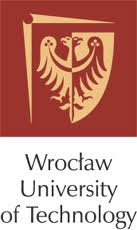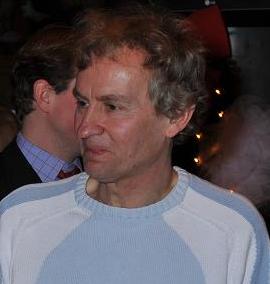
|
ICCCI 20113rd International Conference onComputational Collective Intelligence - Technologies and Applications21-23 September 2011, Gdynia, Poland |
 
|
Proceedings
|
Prof. Jan TreurProf. Jan Treur Agent Systems Research Group,
From Mirroring to the Emergence of Shared Understanding and Collective Power
Abstract: Sometimes the expression ‘like managing a herd of cats’ is used to express the impossibility of a task, for example, in relation to managing a group of researchers. As each person in a group is an autonomous agent with his or her own neurological structures and patterns, carrying, for example, their own emotions, beliefs, and intentions, it would be reasonable to expect that managing any group would be such an impossible task. But surprisingly it is not. In recent years new light has been shed on this seeming paradox. It turns out that in human agents an important cognitive function is available, called mirroring, which at the neurological level is based on mirror neurons. These are neurons which, in the context of the neural circuits in which they are embedded, show both a function to prepare for certain actions or bodily changes and a function to mirror such actions or body states of other persons. The discovery of mirror neurons is often considered a crucial step for the further development of the discipline of social cognition, comparable to the role the discovery of DNA has played for biology, by providing a biological basis for many social phenomena. This has led to a new discipline called Social Neuroscience, which in recent years has shown a very fast development. In this talk it will be discussed how principles from Social Neuroscience can be abstracted to obtain social agent models at a cognitive and affective level, and one step further to social behavioural agent models. These agent models can be used to perform simulation and analysis of the emergence of shared (empathic) understanding among agents, and collective power of groups developed by shared beliefs, intentions and related emotions.
Biographical note: Jan Treur has a full professorship in Artificial Intelligence at VU University Amsterdam since 1990. He is heading the department of Artificial Intelligence consisting of about 45 researchers, and leads the Agent Systems Research Group as one of the three groups. He is an internationally well-recognized expert in agent-oriented, cognitive and social modelling. He is or has been member of the programme committee or board of many of the main conferences, workshops and journals in these areas. His extensive list of publications covers major scientific publication media, including the top level conferences and journals. With his group he takes part in the EU-funded 7th Framework projects SOCIONICAL studying the role of personal ambient intelligent devices in emergent social processes, and ICT4DEPRESSION focusing on ambient support for persons suffering from depression. Some other recent involvements are in initiating and organising the series of international workshops on Human Aspects in Ambient Intelligence (HAI) at the European Conference on Ambient Intelligence (AmI’07), and at the International Conferences on Intelligent Agent Technology, IAT'08-'11. Moreover, he initiated and designed a strongly multidiciplinary Bachelor and Master study program at VU University in Lifestyle Informatics and Human Ambience, combining subjects from Ambient and Artificial Intelligence, Biomedical Sciences, Computer Science, and Psychology. |
